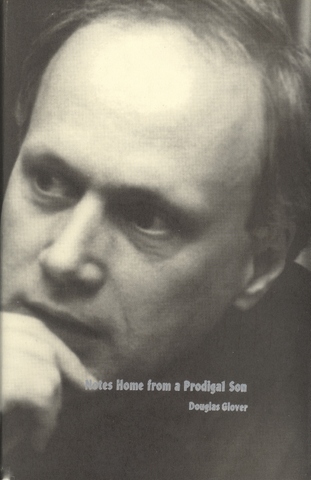.
 In this new book Douglas Glover includes essays on Christa Wolf, Margaret Atwood, Leonard Cohen, and Hubert Aquin; three interviews and a memoir; and three considerations of the nature of fiction and one on comedy. In them, he establishes paternity, explanations and justification for the non-narrative novel, what Glover refers to in one essay title as the novel as poem. Again and again he cites John Hawkes’s much-quoted remark that the enemies of the novel are “plot, character, setting, and theme.” And he rounds up the usual suspects in marshalling his arguments: Nabokov, Paul Valery, Samuel Beckett, Victor Shklovsky. This kind of writer, Glover argues, chooses less than he is chosen. Writing becomes an act of survival, if it is even, ever, that: “Christa Wolf is hiding in California, living the life of one of her own characters, hounded out of Germany for being politically incorrect. Leonard Cohen stopped writing novels after Beautiful Losers. And Hubert Aquin killed himself. Exile, silence and death, which are optional modes in a piece of fiction, seem, in the lives of certain writers, to take on a kind of necessity–there is only this and writing, or, perhaps, this or writing. For this kind of writer, there are no safe havens, no fire exits, and the patient never recovers.” It is a particular strength of this collection that Glover not only demonstrates how much Canadian fiction is part of the avant-garde non-narrative novel but also that the circumstances of Canada invite just such writing: “These are writers and artists … who see marginality (Canadianness) as a metaphor for the self in the modern age–that self which everywhere feels somehow exterior and irrelevant to its own destiny.” To understand it this way is to see Canadian writing in a new way. (Review of Contemporary Fiction)
In this new book Douglas Glover includes essays on Christa Wolf, Margaret Atwood, Leonard Cohen, and Hubert Aquin; three interviews and a memoir; and three considerations of the nature of fiction and one on comedy. In them, he establishes paternity, explanations and justification for the non-narrative novel, what Glover refers to in one essay title as the novel as poem. Again and again he cites John Hawkes’s much-quoted remark that the enemies of the novel are “plot, character, setting, and theme.” And he rounds up the usual suspects in marshalling his arguments: Nabokov, Paul Valery, Samuel Beckett, Victor Shklovsky. This kind of writer, Glover argues, chooses less than he is chosen. Writing becomes an act of survival, if it is even, ever, that: “Christa Wolf is hiding in California, living the life of one of her own characters, hounded out of Germany for being politically incorrect. Leonard Cohen stopped writing novels after Beautiful Losers. And Hubert Aquin killed himself. Exile, silence and death, which are optional modes in a piece of fiction, seem, in the lives of certain writers, to take on a kind of necessity–there is only this and writing, or, perhaps, this or writing. For this kind of writer, there are no safe havens, no fire exits, and the patient never recovers.” It is a particular strength of this collection that Glover not only demonstrates how much Canadian fiction is part of the avant-garde non-narrative novel but also that the circumstances of Canada invite just such writing: “These are writers and artists … who see marginality (Canadianness) as a metaphor for the self in the modern age–that self which everywhere feels somehow exterior and irrelevant to its own destiny.” To understand it this way is to see Canadian writing in a new way. (Review of Contemporary Fiction)
Critical theory has been liberating for him, his three story collections and three novels, notably The Life and Times of Captain N. (1993), detonating some of the most passionately individual prose of recent decades. (The Globe and Mail)
—
Table of Contents
The Novel as a Poem — Her Life Entire — The Essential Furniture of the World — Difficulty and Revolution — The Net and the Quest for Christa T. — Laughter and Anxiety — Nihilism and Hairspray — Gertrude, or the Postmodern Novel — A Feeling for History — The Masks of I — Beautiful Losers — The Sparks that Fly off when Two Skins Touch — The Familiar Dead.
—
